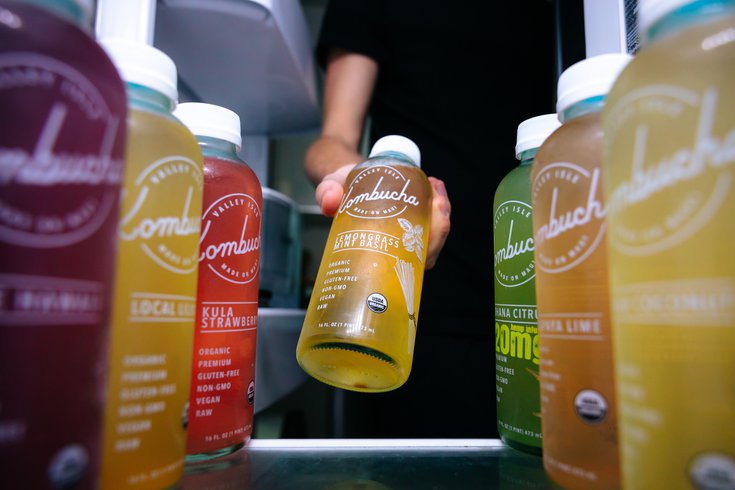
August 04, 2023
 Tyler Nix/Unsplash
Tyler Nix/Unsplash
Kombucha may help people with type 2 diabetes lower their blood sugar levels, a new study finds. It also may provide some other health benefits, experts say.
Drinking kombucha, a type of fermented tea that's believed to have originated more than 2,000 years ago, may help reduce blood sugar levels in people with type 2 diabetes, according to a recent study.
People with type 2 diabetes who drank 8 ounces of kombucha with their dinners for four weeks had lower fasting blood sugar levels compared to when they consumed a similar-tasting placebo beverage, Georgetown University researchers found.
Drinking kombucha reduced the participants average blood sugar levels from 164 to 116 milligrams per deciliter, the study found. The American Diabetes Association recommends that blood sugar levels should be between 80 to 130 milligrams per deciliter before meals.
The kombucha was mainly comprised of lactic acid bacteria and acetic acid bacteria, researchers found. Both are considered probiotics.
The researchers said the study offers preliminary evidence that kombucha may help treat or prevent type 2 diabetes. People with type 2 diabetes do not produce enough insulin to regulate their blood sugar levels, and their cells respond poorly to insulin. The researchers said larger studies need to be completed to provide more definitive evidence of the effects of kombucha on type 2 diabetes.
"Some laboratory and rodent studies have shown promise, and one small study in people without diabetes showed kombucha lowered blood sugar, but to our knowledge this is the first clinical trial examining effects of kombucha in people with diabetes," said Dr. Dan Merenstein, a human science professor at Georgetown. "A lot more research needs to be done, but this is very promising. A strength of our trial was that we didn't tell people what to eat because we used a crossover design that limited the effects of any variability in a person's diet."
Kombucha is a fermented drink made with green or black tea, sugar, yeast and bacteria. It's believed to have originated in China in about 200 B.C., though it did not become popular in the western world until the 1990s. The brew typically sits for a few weeks before turning into a lightly carbonated drink that's slightly sweet and tangy.
The fermenting process adds a bit of alcohol to the kombucha, though most bottled brands of the drink are marketed as non-alcoholic because the alcohol levels fall beneath the federal threshold.
Kombucha often is associated with other probiotic-rich foods like kimchi because of the bacteria it contains. More research is needed into whether kombucha is beneficial to gut health, but health experts say it can help feed and increase good bacteria in the gut, which can have positive benefits on one's digestive system and overall health.
Kombucha may provide some of the same health benefits as green tea, because they each contain antioxidants and bioactive compounds like polyphenols that can protect the body from damage. Combining kombucha with an anti-inflammatory diet, like the Mediterranean diet, may provide some added benefits, according to the Cleveland Clinic.
Nearly all bottled kombucha drinks are safe to consume, but brewing kombucha at home comes with with a risk of contamination and possible illness. Though it's unclear how much kombucha is too much to consume per day, it's recommended that people drink no more than 12 ounces per day. And because of the alcohol and live bacteria in kombucha, young children, people who are pregnant and people who are immunocompromised are advised to avoid it.